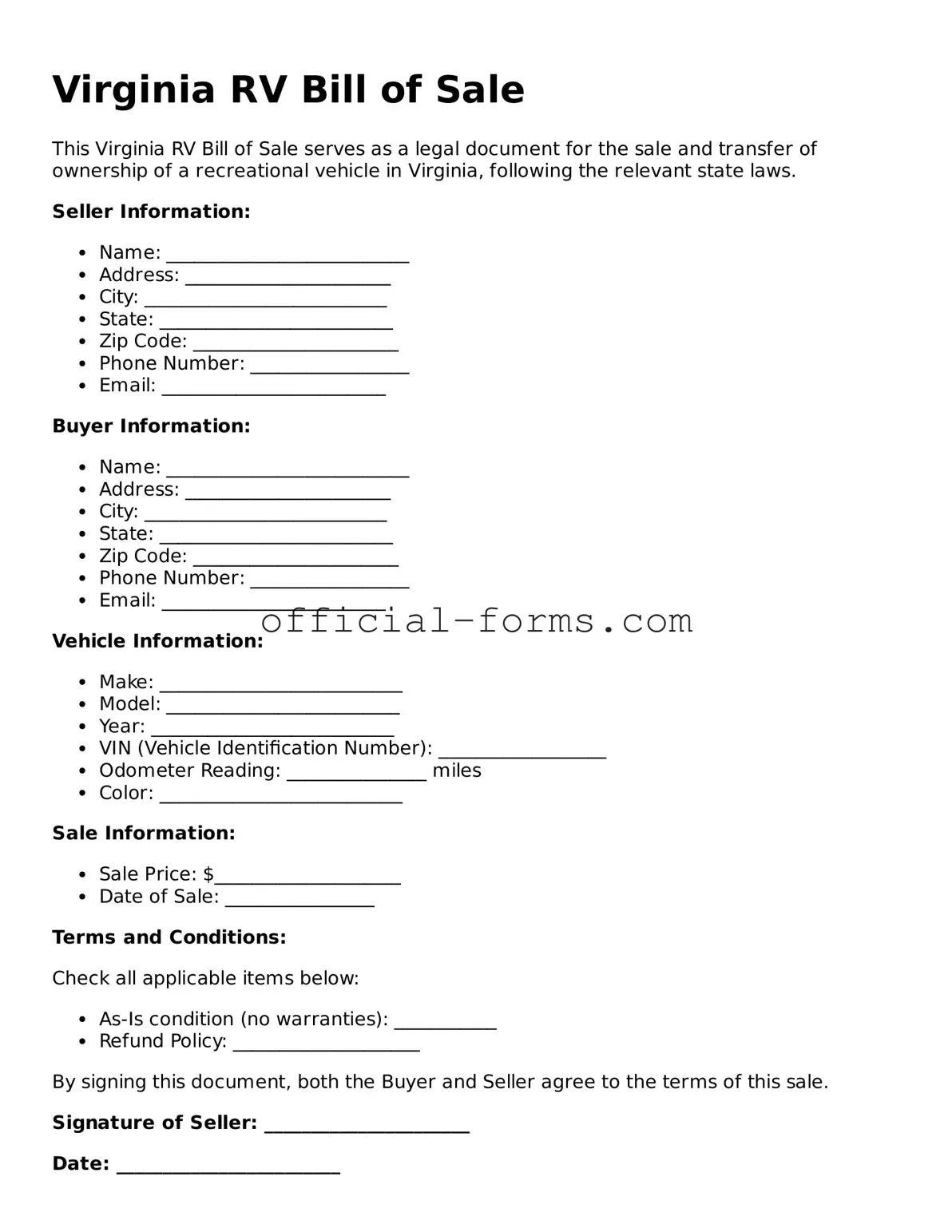Official Virginia RV Bill of Sale Document
The Virginia RV Bill of Sale is a legal document that records the transfer of ownership of a recreational vehicle from a seller to a buyer. This form serves as proof of the transaction and includes essential details such as the vehicle's identification number, sale price, and both parties' information. Having a properly completed bill of sale can simplify future registration and title processes.
Open My RV Bill of Sale Now

Official Virginia RV Bill of Sale Document
Open My RV Bill of Sale Now
Don’t leave your form incomplete
Finish RV Bill of Sale online quickly from start to download.
Open My RV Bill of Sale Now
or
➤ PDF
